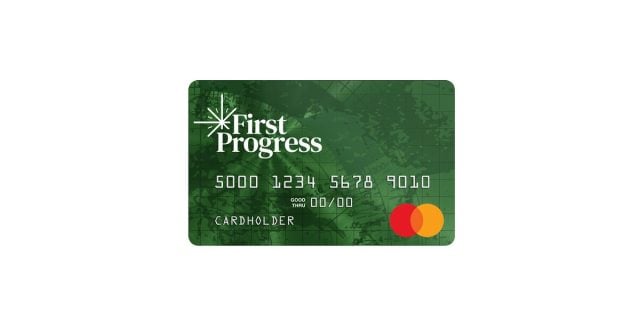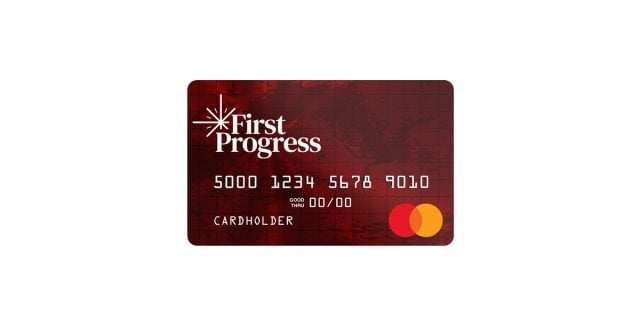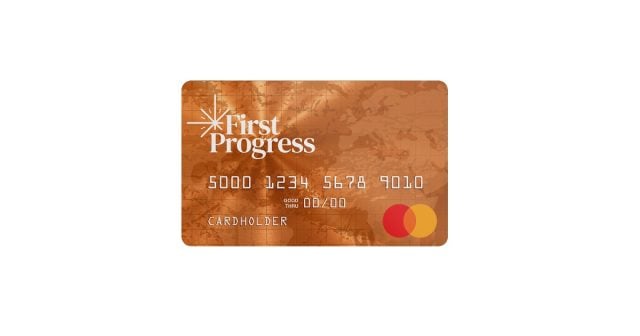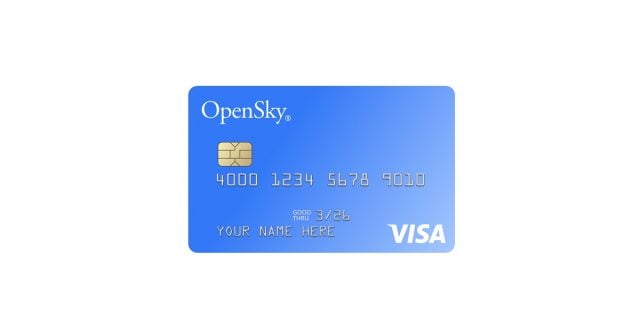by BestCards Team | Last updated on October 23rd, 2023
NYCB Secured Card
NYCB Secured Card

NYCB Secured Card
- 29.24% variable based on the Prime Rate Regular Purchase APR
- 29.24% variable based on the Prime Rate Balance Transfer APR
- 29.99% variable based on the Prime Rate Cash Advance APR
At a Glance
The NYCB Secured Card is designed to help those who are either new to credit or repairing damaged credit boost their score and advance to an unsecured credit card in the future. The card requires a security deposit of at least $300, which may be refunded in as little as 11 months, and the card switched to an unsecured card, depending on good payment history. The card has no annual fee.
- Best Benefits
- Rates & Fees
- Why Should You Apply?
- No annual fee
- Credit limits between $300 and $5,000
- Qualify for credit limit increases in as little as 7 months
- Possibility to upgrade to an unsecured card
- Regular Purchase APR: 29.24% variable based on the Prime Rate
- Balance Transfer APR: 29.24% variable based on the Prime Rate
- Balance Transfer Transaction Fee: Either $10 or 5% of the amount of each transfer, whichever is greater
- Cash Advance APR: 29.99% variable based on the Prime Rate
- Cash Advance Transaction Fee: Either $15 or 5% of the amount of each cash advance, whichever is greater
- Foreign Transaction Fee: 3% of the transaction amount in U.S. dollars
- Late Payment Penalty Fee: Up to $40
- Return Payment Penalty Fee: Up to $35
- Minimum Deposit Required: $300
- You want to boost your credit score but have had credit issues in the past
- You are determined to establish good credit habits and graduate to an unsecured card
- You don’t want to pay an annual fee
NYCB Secured Card Review
Secured credit cards are designed for boosting credit scores (and often little else), and the Secured Visa from New York Community Bank certainly fits that mold. The card is a no-frills secured card that offers little more than the lifeline a person needs to establish or repair their credit.
Flexible Credit Limits
The NYCB Secured Card, like all secured credit cards, requires a safety deposit to act as collateral. This deposit also serves as the credit limit. NYCB deposits can start as low as $300 up to $5,000 but must be in increments of $50.
Certificate savings deposit accounts, as they are known, are not held by New York Community Bank, but rather through First National Bank of Omaha (First Bankcard), the issuer of all NYCB credit cards. Money deposited in the account doesn’t earn interest, though this isn’t uncommon with secured cards.
A Light at the End of the Tunnel
Secured credit cards usually offer little more than a chance to rebuild credit. The problem with this approach is that cardholders can become disillusioned that they’ll never progress to an unsecured card.
New York Community Bancorp (the NYCB family of banks, which includes other banks, such as Garden State Community Bank, Queens County Savings Bank, AmTrust, and others) understands these worries and provides a clear roadmap for cardholders to follow. NYCB Secured Cardholders can advance to an unsecured card and have their deposit refunded in as little as eleven months. All that needs doing is for the account holder to make on0-time regular payments and demonstrate financial responsibility. Obviously, this graduation depends on an assessment of the creditworthiness of each individual, but it is a light at the end of the tunnel, nonetheless.
Related Article: What Are the Easiest Credit Cards for Bad Credit to Get?
Before even graduating to an unsecured card, NYCB offers the chance at a credit limit increase in as few as seven months. Credit limit increases, like deposit refunds, vary based on individual cases and a history of on-time payments. The good part, however, is that no additional deposit is required, meaning cardholders can take their first step from secured to unsecured – without losing their safety net.
A High Fixed-Rate APR
The NYCB Secured Card features a fixed interest rate in the mid-20s, which is pretty high – even for a secured card. Fortunately, part of building credit is making on-time payments, so the APR shouldn’t pose a threat to anyone determined to raise their score.
Should You Apply for the NYCB Secured Visa?
Secured cards are pretty much all the same (with the exceptions of the few rewards secured cards out there, like the Discover It Secured). These outliers aside, usually picking a secured card is as simple as sticking with your local bank or credit union. In these cases, it’s the end goal that is important, rather than the card perks.
NYCB understands this fact, and its NYCB Secured Card is designed to give hope to those rebuilding their credit. With every on-time payment and positive habit gained, cardholders move a step closer to a credit line increase without the need for an additional deposit, or even better, their deposit returned and the card upgraded to the NYCB Platinum Edition.
Using the card responsibly and monitoring your FICO credit score can help you graduate from a card for bad credit to a rewards card or low APR credit card in the future.
If you are looking for a card with a lower rate, the First Progress Platinum Prestige Mastercard® is another excellent secured card to consider. Otherwise, secured cards are all about pulling up your bootstraps and doing the work needed to get to where you want to be – and the NYCB Secured Card does this very well.
For more information on secured credit cards, visit our Comprehensive Secured Card Reference Page, featuring the best-secured card offers, detailed advice, and tips to help you build your credit history.
Browse Other Credit Cards:
Browse Other NYCB Credit Cards:
Editorial Disclosure – The opinions expressed on BestCards.com's reviews, articles, and all other content on or relating to the website are solely those of the content’s author(s). These opinions do not reflect those of any card issuer or financial institution, and editorial content on our site has not been reviewed or approved by these entities unless noted otherwise. Further, BestCards.com lists credit card offers that are frequently updated with information believed to be accurate to the best of our team's knowledge. However, please review the information provided directly by the credit card issuer or related financial institution for full details.





